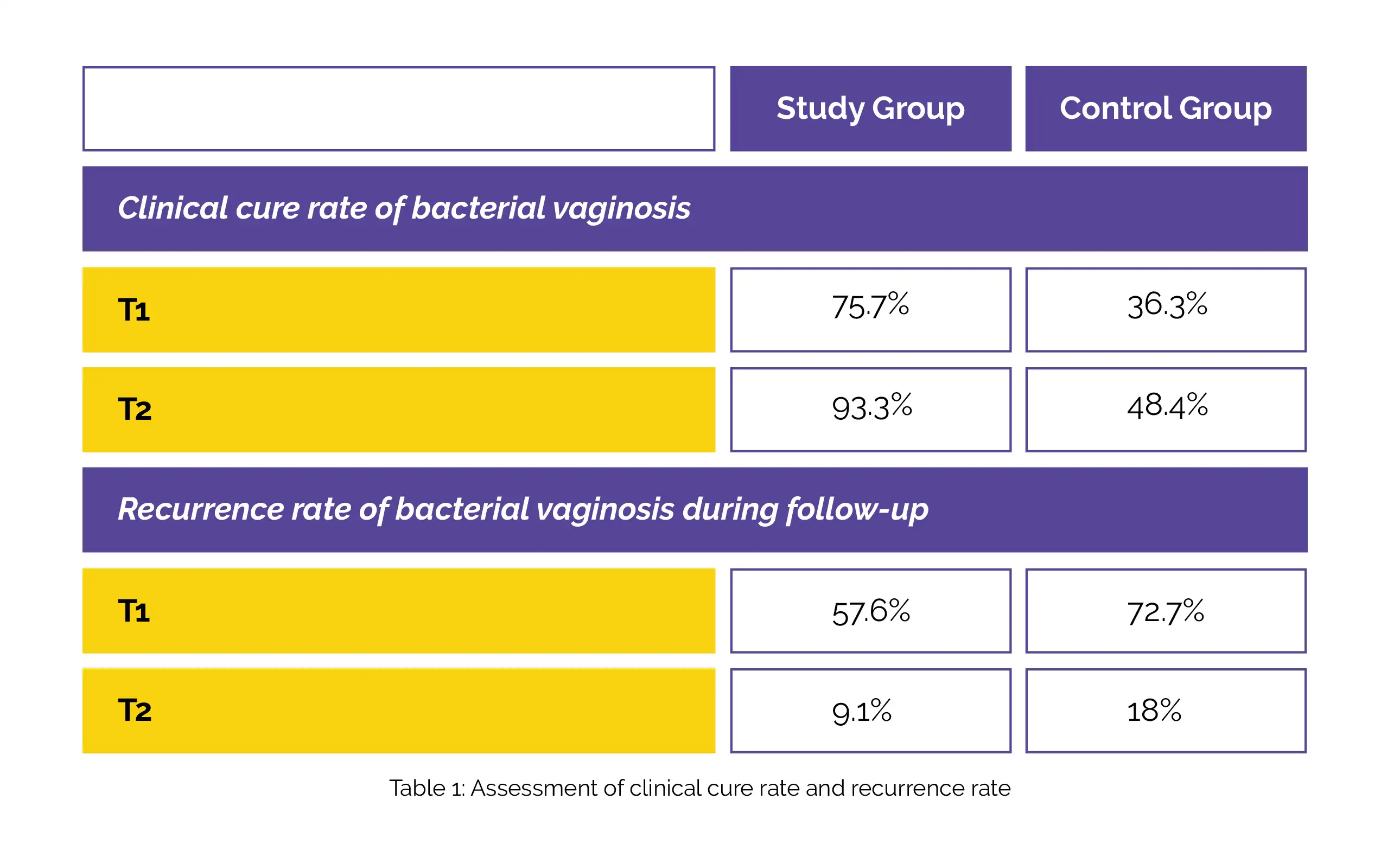Categories
Change Password!
Reset Password!


The objective of a randomized controlled clinical trial was to assess the effectiveness of Lactoferrin in the prophylaxis of recurring cases of bacterial vaginosis among women in the third trimester singleton pregnancy.
The combined use of orally administered probiotics and Lactoferrin in repeated cycles is advantageous in the prevention of bacterial vaginosis relapses in the third trimester of pregnancy.
The objective of a randomized controlled clinical trial was to assess the effectiveness of Lactoferrin in the prophylaxis of recurring cases of bacterial vaginosis among women in the third trimester singleton pregnancy.
The study involved 66 participants with recurring bacterial vaginosis history. These volunteers were segregated into the study group, which received oral Lactoferrin, specifically 2 capsules per day for 5 days followed by 1 capsule per day for the next 10 consecutive days and the control group, which did not get Lactoferrin. Throughout the follow-up period, all participants in both groups took either 1 Lactoferrin capsule or a placebo daily for a duration of 10 days each month.
At T1 (1 month) and T2 (2 months), the study group showed a higher rate of microbiological cure (as indicated by Nugent scores) and a lower recurrence rate of bacterial vaginosis when compared to the control group, as indicated in Table 1:

Additionally, the control group had significantly greater occurrences of premature rupture of membranes, low birth weight, cesarean section deliveries, preterm births, and low APGAR 1 scores.
The administration of probiotics orally, combined with Lactoferrin in repeated courses, seems to be advantageous in the prevention of the recurrence of bacterial vaginosis. This is supported by higher rates of both clinical and microbiological cure, along with a favorable safety profile.
The Egyptian Journal of Hospital Medicine
Role of Oral Lactoferrin in Prevention of Recurrent Bacterial Vaginosis in Third Trimester of Pregnancy
Amal Mohamed Alanwar et al.
Comments (0)